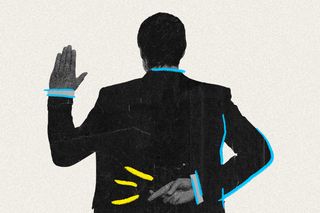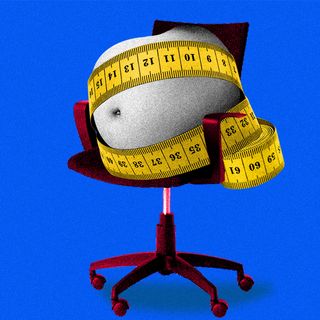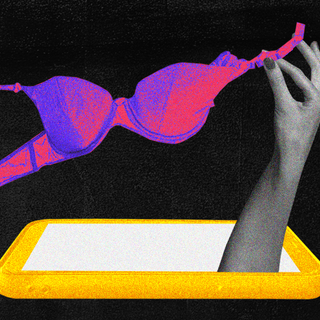
People Are Willing to Excuse Lies, Misinformation That ‘Might’ Come True: Study
A new study highlights “the negative consequences of giving airtime to leaders in business and politics who spout falsehoods.”

The “Good Welfare Scheme” is supporting people impacted due to Covid19, says a leader of a fictional country. The support exists in the person’s mind, and insofar, becomes a deliberate lie when spoken in front of a political rally; his lush beard billowing with the winds of half-truths. But that the said scheme could eventually come true, may makepeoplemorelikely to find it less unethical than most lies, according to a new study.
In other words, just because something may come true in the future, people — politicians, business persons, citizens — may find it morally okay to use factually incorrect statements in the present. Published in the American Psychological Association’s Journal of Personality and Social Psychology, the research underpins what makes deliberate attempts of misinformation seem acceptable. But more worryingly, it highlights how and why people may let rampant instances of misinformation off the hook.
“Misinformation in part persists because some people believe it. But that’s only part of the story,” lead author Beth Anne Helgason, a doctoral student at the London Business School, said in a press release. “Misinformation also persists because sometimes people know it is false but are still willing to excuse it.”
To see how themental gymnastics plays out, researchers enrolled 3,600 participants and conducted six experiments; each of which involved showingthemsome statements (clearly mentioned as false). The participants were then asked to evaluate, even predict, how a said statement may come true in the future. For instance, if a person lies on their resumé about knowing data visualization, the participant analyzed the possibility of the candidate eventually enrolling for thecourse, and converting the said lieinto a truth. Or the participants were shown factually incorrect political statements, and asked to predict the circumstances under which these could become a reality. If the person was able to imagine it, the said lie would be deemed acceptable.
“Our findings reveal how our capacity for imagination affects political disagreement and our willingness to excuse misinformation.”
Related on The Swaddle:
Why We Believe People in Power, Even When They Lie
The trend was more prominent when the false statement fit with individual political views. Lies seemed unethical because people were more likely to believe in the broader meaning of the statement; veracity and credibility became trivial semantics. And in cases where the stars aligned — where someone spoke of an imaginable lie that aligned with personal beliefs — the person was also more likely to share the misinformation on social media.
In other words, when misinformation supports one’s politics and biases, people may be willing to spread it “because they believe the statement to be essentially, if not literally, true,” one of the researchers noted.
This research highlights then “the negative consequences of giving airtime to leaders in business and politics who spout falsehoods.” Rewind back to the many tall tales and whole lies political leaders have spoken in recent memory. There are no migrants on the road; there were no oxygen-related deaths; there will be no more black money after demonetization; India’s Covid19 management was a success; no one starved between March-May 2020. An arsenal of similar falsehoods has been sufficiently debunked by lived experiences as well as various fact-checking organizations. Yet, there is a good majority of people with similar political ideology who would think it’s okay for the government to confidently be dishonest because these statements could be true some day. There will be no starvation one day; same with black money.
In the study, even when people were encouraged to think twice about the ethics of lying, it was “insufficient to reduce the effects of imagining a future where it might be true.”
Arguably, a repeated lie could become a truth in a self-prophecizing fashion. The said liars — historically and in the present — have fiercely created illusions of truth simply by virtue of repetition, regardless of whether something is or not. Psychologist Tom Stafford underlined the importance of understanding this pattern; only then can people avoid falling for propaganda.
Sadly, repetition is not the only thing affirming our belief in misinformation. Our biases and perceptions of truth give wind to the ever-strong wings of falsehoods. As The Swaddle noted earlier: “Human nature — coupled with the rampant misinformation, political gaslighting, and authoritarian behavior — spell a morbid era for truth and its arbiters.” The question is: can we ever have the strength to recognize lies?
Saumya Kalia is an Associate Editor at The Swaddle. Her journalism and writing explore issues of social justice, digital sub-cultures, media ecosystem, literature, and memory as they cut across socio-cultural periods. You can reach her at @Saumya_Kalia.
Related


Why Workplace ‘Health’ Programs Claiming to Reduce BMI Are Discriminatory
